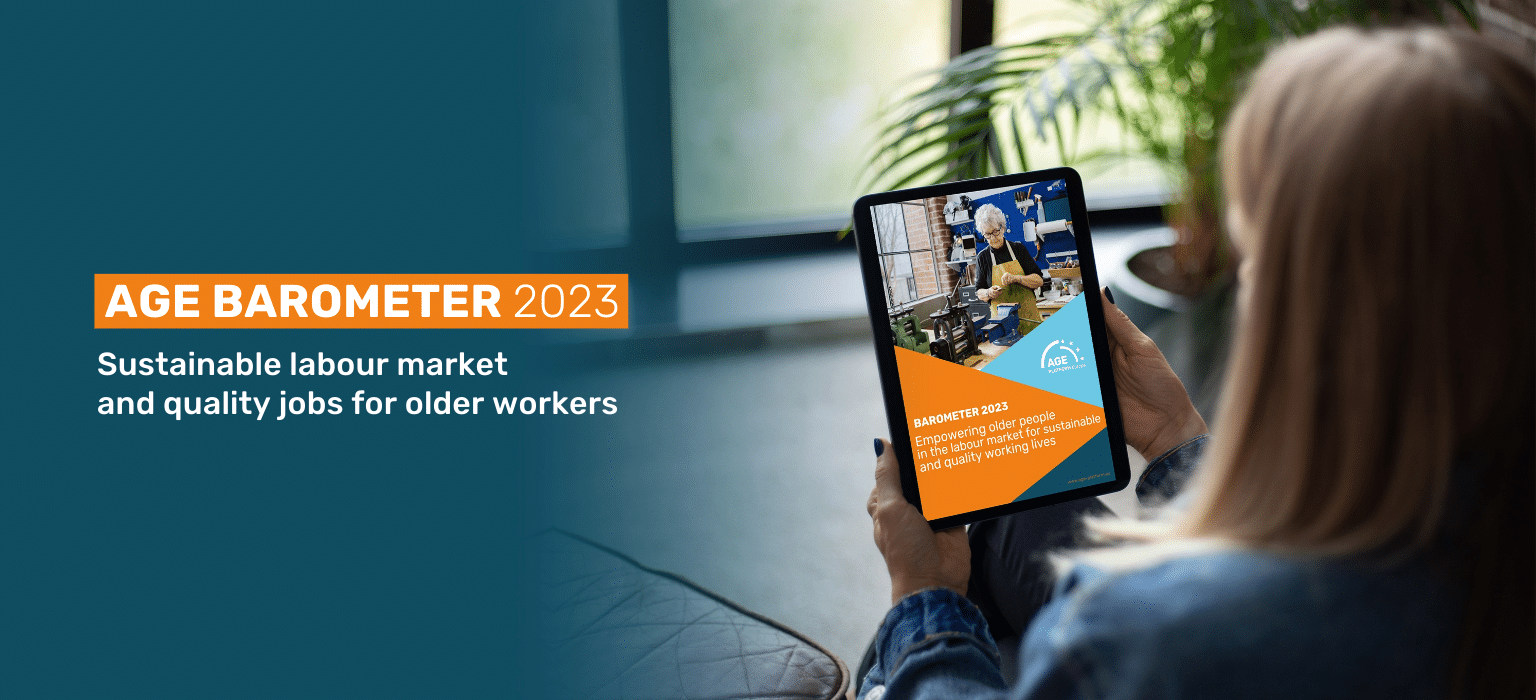Finland
Information provided by the Association of Swedish-Speaking Pensioners in Finland and desk research

Support in the labour market
In Finland, the employment rate of people over 50 is higher than the European average (75.6% vs 68.8%). Conscious of the ageing population, Finland has been planning since 2020 the implementation of a National Plan on Ageing for 2030, part of which relates to employment and the ageing workforce. This plan involves the Ministry of Social Affairs and Health, the Ministry of Education and Culture, the Ministry of Economic Affairs and Employment, the Ministry of the Environment, the Finnish Institute for Health and Welfare and the Association of Finnish Municipalities.
National Plan on Ageing for 2030
Extend the functional ability and working careers of older working-age people
Recognising that the functional capacity of older working-age people has improved, and careers have a longer duration, particularly in the services for older people, the National Plan on Ageing provides three objectives for 2030:
Preparing for ageing begins in middle age and continues when people retire (both at individual and societal levels).
Different solutions and types of flexibility are used to ensure longer careers and prevent age discrimination in working life.
The competence and coping of those working in the services for older people and the attractiveness of the sector have been improved.
Regarding older job seekers, several programmes newly implemented support them among other unemployed people in vulnerable situations. According to the Joint Employment Report 2022, in January 2021, several amendments to the labour law allowed more tailor-made and integrated services for people in vulnerable situations, in particular the long-term unemployed. Additional changes have been pursued in May 2022, including a law on public employment and business services regulating the Nordic model of employment services aiming to provide more personalised and integrated services to support some 10,000 persons into employment by 202577. Finally, there is an ongoing continuous learning reform78 aiming to reach the most disadvantaged groups in upskilling and retraining to adapt to the changing work demand.
Age discrimination in employment
In Finland, age discrimination is prohibited by the Finnish Constitution, the Non-Discrimination Act and the Employment Contracts Act.
The Ombudsman for Older People is an autonomous and independent authority that promotes the realisation of the rights and best interests of older people. The Ombudsman for older people is responsible for ensuring that the rights and status of older people are taken into account in legislation and decision-making79. The new official Ombudsman for Older People Dr Päivi Topo, took up her post in January 2022.
In October 2022, the Ombudsman for Older People proposed to policymakers three solutions to promote equal opportunities for older people in the digital society. The three specific measures could have a significant impact on giving equal opportunities to older workers in the labour market by ensuring better accessibility to digital training and digital support. Firstly, it proposes to regulate the obligation of municipalities to coordinate digital support in their territory in order to ensure, better than today, sufficient support for the use of digital devices and services for older people in each municipality. Then, it proposes the establishment of a centralised transactional channel at national level for people who do not use digital services. Finally, it wants to clarify electronic transactions on behalf of others and assisted transactions80. These measures could, at different levels, help all people to access their labour market rights, even if they have poor digital skills. Similarly, they support all the steps of older jobseekers who may not have sufficient digital skills in their job search or in administrative contacts related to their unemployment.
Workplaces for all ages
The “Hyvä veto” project launched in the frame of the National Plan on Ageing will propose a model aiming to improve well-being at work. It consists of good practices developed in collaboration with social and healthcare organisations in several areas, including strengthening the cooperation between younger and older employees. It is also planned to use research data and analysis to enable the development of recommendations and guides that can be used for training and professional life.
This project will be based in particular on the first results of a preliminary study: the Kunta10-study. Targeting municipal staff in several cities, this study measured the impact of specific changes on staff health and well-being. The data from this first study will be used to develop management projects to ensure the well-being of employees throughout their careers.
This country assessment is part of the 2023 edition of AGE Barometer dedicated to employment, which you can download below. Find out more online here.
COUNTRY ANALYSIS
Contact

Sarah Loriato
Policy Officer on Employment and European Parliament Liaison
Sarah is in charge of AGE’s policy activities in the fields of employment, participation and active citizenship in old age. She also monitors EU initiatives on volunteering for older people and lifelong learning. She is responsible for the Task Force dedicated to on Employment, participation and active citizenship. Sarah also coordinates AGE’s relations with the European Parliament (EP).



